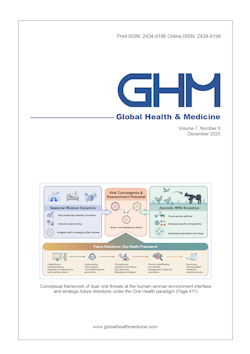Global Health & Medicine 2021;3(5):343-350.
Hepatitis medical care coordinators: Comprehensive and seamless support for patients with hepatitis
Isoda H, Eguchi Y, Takahashi H
Chronic liver disease, especially viral hepatitis, is an urgent issue in Japan. Human resource management is important to promote appropriate care for patients with chronic liver disease in medical institutions and in the community. In 2011 the Ministry of Health, Labour and Welfare in Japan started training hepatitis medical care coordinators (HMCCs). Various medical professionals (such as public health nurses, general nurses, and clinical technicians), patients, and ordinary citizens are certified as HMCCs by the prefectural government after learning about liver diseases in a training program. The training program can be optimized in accordance with the regional circumstances and basic knowledge and skills of the applicants. HMCCs encourage residents and patients to undergo a hepatitis screening test, after which positive patients undergo detailed examination, treatment, and follow-up. HMCCs contribute to the expansion of knowledge about hepatitis in their workplace and community. By 2018, there were HMCCs in all 47 prefectures of Japan. There were 20,049 HMCCs in 2019. The most common professions of HMCCs were public health nurses, followed by general nurses, hospital pharmacists, laboratory technicians, and medical social workers. After certification, the activities of HMCCs vary; to ensure that HMCCs are adequately used in medical institutions, the supervisor and physicians must recognize the importance of HMCCs and generate opportunities for HMCC activity. The training and effective utilization of HMCCs is a promising way to decrease the prevalence and mortality of chronic liver diseases in Japan.
DOI: 10.35772/ghm.2021.01073







